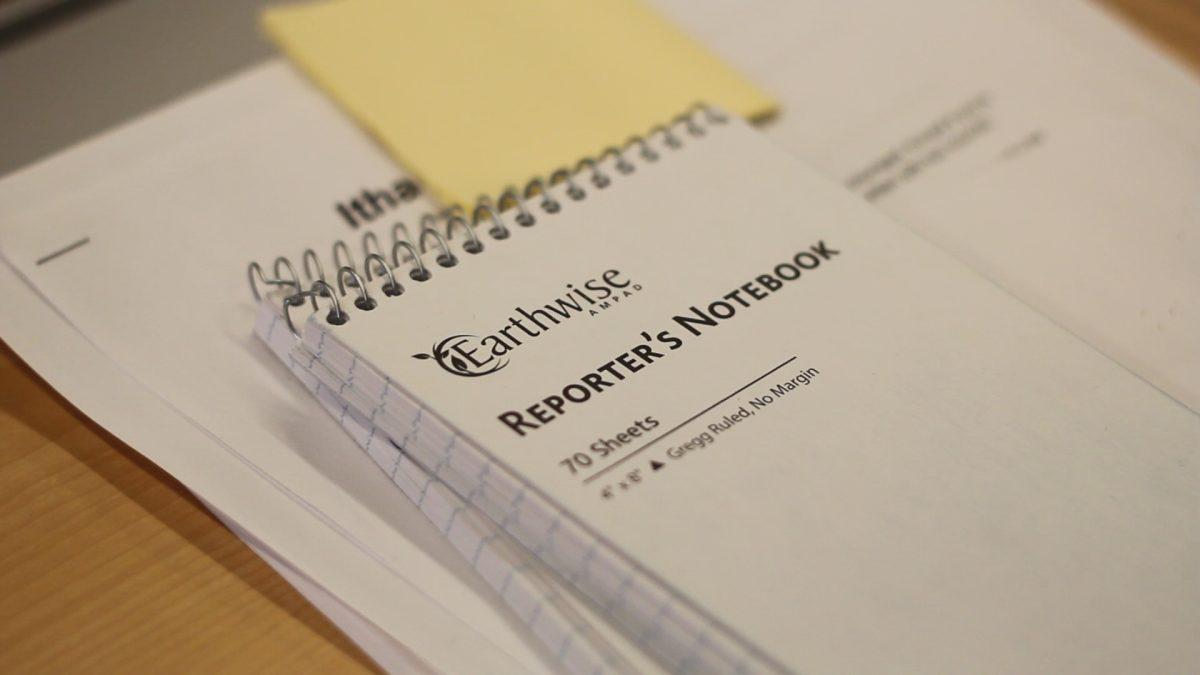Before and during the campaign, Trump made headlines for a variety of outrageous statements. He has bragged on camera about sexually assaulting women; mocked a disabled reporter; promised to ban people entry into the country based on their religion; said a federal judge was unable to do his job based on his race; said that Mexicans were rapists; criticized a female candidate based on her appearance; and suggested a journalist was menstruating when she asked him a tough question at the debate, among other comments.
Trump’s election is raising questions among journalists and journalism students about their role as journalists in American society.
“There will be studies of this as one of the low points in U.S. mainstream media history, along with their absolute failure in the run-up to the invasion of Iraq,” said Jeff Cohen, the director of the Park Center for Independent Media. “They’re swimming in money, and the U.S. public is being treated to an election as entertainment.”
https://www.youtube.com/watch?v=1VzrFDgPiN0
Cohen pointed to comments made by Leslie Moonves, the CEO chairman of CBS, to characterize the media’s failings in the election. Moonves said Trump’s candidacy “may not be good for America, but it’s damn good for CBS.” He also pointed to data reflecting that during the first 11 months of 2015, Trump received 81 minutes of coverage on ABC World News Tonight, compared to a mere 20 seconds for Democratic candidate Bernie Sanders.
A report from the Shorenstein Center on Media, Politics and Public Policy at Harvard University found that Trump had received substantial media coverage during 2015 despite the fact he was way behind in the polls and raising little money, two factors often used to predict which candidates would be successful. The study also found that of the 11 mainstream outlets, all of them gave Trump a majority of positive or neutral coverage, which is striking considering the tone and content of Trump’s comments.
“I think they focused too much on what each candidate said or did, and didn’t really focus on their issues or their policy stances,” Celisa Calacal, a junior journalism major at Ithaca College, said. “I think when you’re electing a president or any elected official, their issues or policy stances are the most important and not necessarily what they say or what they tweet.”
Kendyl Bennett, a sophomore television-radio major at the college, said despite some journalists who were doing very good election-related work, media coverage of the election was “very poor.”
“It shined things in a different light than what was actually going on, or they were highlighting things that were just not as important,” she said. “I think the good journalism was covered up by some of the negative media.”
Calacal said she consumed a variety of media, ranging from traditional media such as The New York Times and Washington Post to independent media sources such as The Intercept.
She said the media clearly missed the wave of Trump voters who made the difference in the elections in states such as Wisconsin and Michigan.
“It also made him seem like there was no way the American people would vote for him, when in reality he was connecting to the economic anxieties of a lot of lower class, middle class, working Americans,” she said. “I think their concerns were brushed aside in favor of comments that he made, while in reality it should have been realized by the media he was having an impact on these people, despite all the horrible things that he has said and done.”
Although the media created Trump by giving him fawning coverage in the New York tabloids and a show, The Celebrity Apprentice, on NBC, Trump will be dangerous to the press as president, Cohen said.
“He has contempt for journalism even though he has manipulated entertainment journalists for the last 25 years,” he said.
Calcal said the election, and the issues in the media, make her more passionate about being a journalist.
“As a young journalist, I can learn from these mistakes and let that drive me going forward,” she said. “It’s kind of reaffirmed my passion for the truth and honesty, and also for advocating for the rights of marginalized people.”
Click here to see a full infographic.







